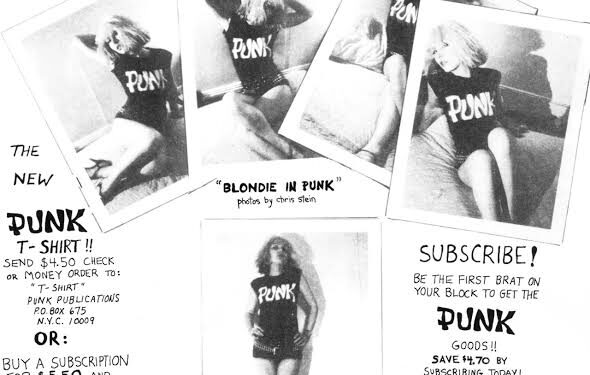Introduction
Deborah Ann Harry (Debbie Harry), best known as the main singer of the band Blondie. She a famous American singer, songwriter, and actor. Deborah Ann Harry was born Angela Trimble on July 1, 1945. Between 1979 and 1981, four of her songs with the band peaked at No. 1 on the US charts. Born in Miami, Florida, Harry was adopted as an infant and raised in Hawthorne, New Jersey. After attending college, she worked various jobs—as a dancer, a Playboy Bunny and a secretary (including at the BBC in New York)—before her breakthrough in the music industry.

In 1974, Harry joined the band Blondie in New York City. The group issued its self-titled first album in 1976, and between that time. In 1979, it issued three more albums, including Parallel Lines, which produced six singles, including “Heart of Glass.” Harry and the band received further recognition for their fifth album, Autoamerican (1980), which included singles like “Rapture,” which is thought to be the first rap song to reach number one on the US charts, and a cover of “The Tide Is High.”Harry’s CarrierHarry released her debut solo album, KooKoo, in 1981.
Debbie Harry’s Carrier
During a Blondie hiatus, she embarked on an acting career, appearing in lead roles in the neo-noir Union City (1980). And in David Cronenberg’s body horror film Videodrome (1983). She released her second solo album, 1986’s Rockbird, and starred in John Waters’s cult dance film Hairspray (1988).
Harry went on to release two more solo albums between then and 1993. After which she returned to film with roles in a John Carpenter-directed segment of the horror film Body Bags (1993), and in the drama Heavy (1995).After coming back together in the late 1990s, Blondie issued No Exit (1999) and The Curse of Blondie (2003). Throughout the 2000s, Harry kept making cameo appearances in independent films like Elegy (2008), Deuces Wild (2003), and My Life Without Me. Panic of Girls, the group’s ninth studio album, was released by Blondie in 2011, and it was followed by Ghosts of Download in 2014. Pollinator, the group’s eleventh studio album, peaked at number four on the UK charts in 2017.
Harry’s musical carrier
In the late 1960s, Harry began her musical career as a backing singer for the folk rock group The Wind in the Willows, which released an eponymous album in 1968 on Capitol Records.In 1974 Harry and Stein left the Stilettos (along with the band’s bassist and drummer) and formed Angel and the Snake with Tish Bellomo and Snooky Bellomo.
Harry released a number of solo albums throughout her time with Blondie, which split up in 1982 and eventually rejoined in 1997. She also dabbled in acting during this time. Harry debuted in David Cronenberg’s 1983 sci-fi horror film Videodrome, and went on to star in Hairspray, Tales from the Darkside, and other films in the 1980s, 1990s, and 2000s, including Deuces (2002), My Life Without Me (2003), and the 2008 film Eulogy, which also starred Matt Dillon and Norman Reedus.
Blondie

They changed the name of the band to Blondie, named after the catcall men often directed at Harry after she bleached her hair blonde. The band quickly became regulars at Max’s Kansas City and CBGB in New York City.Blondie, American rock group known for incorporating varied influences, including avant-garde, reggae, and hip-hop, into the new wave sound of the 1970s and ’80s. Blondie was formed in 1974 by vocalist Debbie Harry (b. July 1, 1945, Miami, Florida, U.S.) and guitarist Chris Stein (b. January 5, 1950, Brooklyn, New York).
Blondie first appeared on the New York punk scene in 1974, when both crime and the city’s economy were at all-time highs. Debbie Harry, the lead vocalist and co-founder of the band, Christ Stein, Harry’s longtime collaborator and ex-romantic partner, drummer Clem Burke, bassist Gary Valentine, and keyboardist Jimmy Destri (the lineup of Blondie would change over the years and for various reunion gigs).
Blondie influenced pop culture
The 1970s chart-topping band Blondie may be known as one of the biggest new wave & punk acts to come out of New York City, but it’s the musicians’ interest in experimenting with genres and melding sounds together that truly brought them lasting fame – or infamy, depending on who you ask – and success.

We’re taking a look at how Blondie made their mark in music history, and why their frontwoman in particular is such an influential figure not only in music, but in pop culture as a whole. With Harry’s beauty, daring choice of clothing, and two-tone bleached-blonde hair, Harry quickly became a punk icon.
In June 1979, Blondie was featured on the cover of Rolling Stone. Harry’s persona, combining cool sexuality with streetwise style, became so closely associated with the group’s name that many came to believe “Blondie” was the singer’s name.
For more news click here
https://timesofindia.indiatimes.com/entertainment/english/music/news/debbie-harry-charli-xcx-is-a-genius/articleshow/59512337.cms



